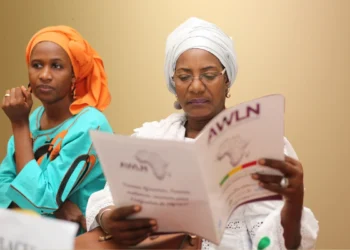Education plays a fundamental role in shaping the success and sustainability of any democracy.
In a country like Ghana, where democratic governance is still evolving, the purpose of education extends beyond mere academic instruction; it is central to empowering citizens, fostering economic development, and strengthening the fabric of society.
Education is a tool for individual growth and a cornerstone for developing a strong, vibrant, and participatory democracy.
Accordingly, Professor Kwaku Azar Asare has emphasized that the central purpose of the free education policy, as implemented by the government, is not merely to provide access to academic instruction but to equip Ghanaians with the critical skills and values necessary for meaningful participation in society.
He highlighted that free education should empower individuals with the ability to discern right from wrong, allowing them to make informed and ethical decisions in their personal lives, workplaces, and broader communities.
“Beyond just acquiring knowledge, education is supposed to shape critical thinking, foster a sense of justice, and empower us to make informed decisions that contribute positively to society”.
“When we can evaluate situations, understand consequences, and advocate for values like fairness, equality, and truth, education fulfills its highest goal: nurturing responsible and engaged citizens”.
Professor Kwaku Azar Asare
Professor Azar Asare stressed that this education goes beyond rote learning and memorization of facts; it aims to foster a sense of moral responsibility and intellectual independence.
The true value of education, he argued, lies in its capacity to develop individuals who can think critically, question the status quo, and stand up for what is just and meaningful.
By promoting the development of both moral and intellectual courage, free education seeks to cultivate citizens who are not afraid to challenge injustice, advocate for social change, and contribute to the progress of their country.
Professor Azar Asare believes that when citizens are empowered to think critically and act morally, they become agents of positive change, capable of making decisions that benefit not only themselves but society as a whole.
Education’s Failure To Confront Society’s Evils
Furthermore, Professor Kwaku Azar Asare expressed his belief that when a society turns a blind eye to the evils within it or, even worse, attempts to justify them, education has fundamentally failed in its purpose.
According to him, the primary goal of education is not just to impart knowledge or technical skills, but to develop a sense of moral integrity and social responsibility in individuals.

In Prof. Asare’s view, education should inspire people to recognize injustices and wrongdoings in society and, more importantly, to stand against them with conviction.
“In that case, we are reduced to spectators who are passive and complicit in the perpetuation of injustice and moral decay”.
“We can stand for something meaningful or we can support the very systems and behaviors that education is meant to dismantle, eroding the principles of accountability and social progress”.
Professor Kwaku Azar Asare
Professor Azar Asare emphasized that if the education system produces individuals who are indifferent to corruption, inequality, or social injustice, then it has missed the mark.
He noted that instead, education should produce critical thinkers who are not only intellectually capable but also morally equipped to challenge the status quo and advocate for change.
For him, an educated society holds itself accountable and refuses to tolerate unethical practices, whether in government, business, or daily life.
Prof. Asare further noted that justifying or ignoring societal evils undermines the very foundation of democracy, fairness, and equality.
As such, he admonished the government, stating, “Do what you want with your free education.”
Prof. Asare implied that while the free education policy may be well-intentioned, it risks failing its true purpose if not aligned with broader goals of fostering critical thinking, moral responsibility, and civic engagement.
READ ALSO: UNIFIL Urges Diplomatic Efforts To Protect Civilians In Southern Lebanon




















